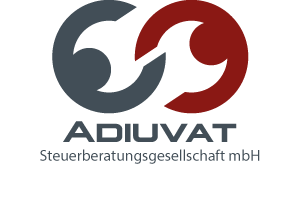Application and submission deadlines
Wage tax deduction characteristics (e.g. tax class, child allowances, church tax characteristics) are regularly formed automatically by the tax authorities on the basis of the data from the registration authorities and made available to the employer for electronic retrieval. A change in the characteristics for the current year may be requested by the employee to the tax office no later than November 30, 2018.
Wage tax allowances (e.g. for income-related expenses, special expenses or extraordinary expenses) can only be taken into account upon application. The prerequisite is that the sum of the allowances to be taken into account is more than 600 euros (application limit), whereby income-related expenses are only included in this sum if they exceed 1,000 euros. Starting in October 2018, a payroll tax allowance can be claimed for 2019, which will be taken into account for a maximum of two calendar years; if circumstances change within this period, the allowance can be adjusted. An application for the current year 2018 can still be submitted to the tax office until November 30, 2018.
Until December 31, 2018, employees who are not subject to assessment may apply for a 2014 income tax assessment (known as an application assessment).
Wages without income tax deduction
For 2019, the basic tax-free amount is expected to be 9,168 euros (18,336 euros for married couples). The amount of the basic tax-free allowance is important, for example, in determining up to which monthly wages no wage tax is due…
Retention obligation for surplus income
Private individuals are also subject to a retention obligation (cf. Section 147a of the German Fiscal Code (Abgabenordnung – AO)) if the sum of positive income from employment, from renting and leasing and, if applicable, from investment income not subject to the final withholding tax procedure was greater than EUR 500,000 (per spouse, if applicable) in the previous calendar year. In this case, from the beginning of the following year, the records and documents on the income and advertising costs related to this income must be kept for 6 years in principle. The obligation to retain data also applies to electronic data, as is the case for business data (see below).
The obligation to keep records does not apply until the income limit of 500,000 euros has not been exceeded for 5 consecutive years. Thus, corresponding records from 2018 must also be retained if the limit has been exceeded in any year since 2013.
Household-related service/handicraft work
For expenses in private households, e.g. for cleaning help, cleaning work or gardening, but also for nursing and care services, an tax reduction of 20% of the costs, up to a maximum of 4,000 euros, can be applied for; for (labor) costs for craftsmen’s services (maintenance, renovation and repair work, expansion measures, garden design, etc.), a maximum reduction of 1,200 euros also applies (Section 35a (2) and (3) EStG).
If a tax reduction is still to be claimed for 2018, payment of the invoice must be made non-cash to the account of the service provider by December 31, 2018.
Offsetting of losses from the sale of shares
Capital gains are regularly taxed by a tax deduction of 25% (plus solidarity surcharge) made by credit institutions, financial service providers, banks, etc. Losses, e.g. from share transactions, are offset by the bank or carried forward to the next calendar year. If losses that have not been offset are to be claimed as part of the 2018 income tax return, an application for loss certification must be submitted to the bank concerned by December 15, 2018 (Section 43a (3) sentence 5 EStG).
(For more notes & information & examples on this, see our 10/2018 Information Letter under Employee Attachments).
